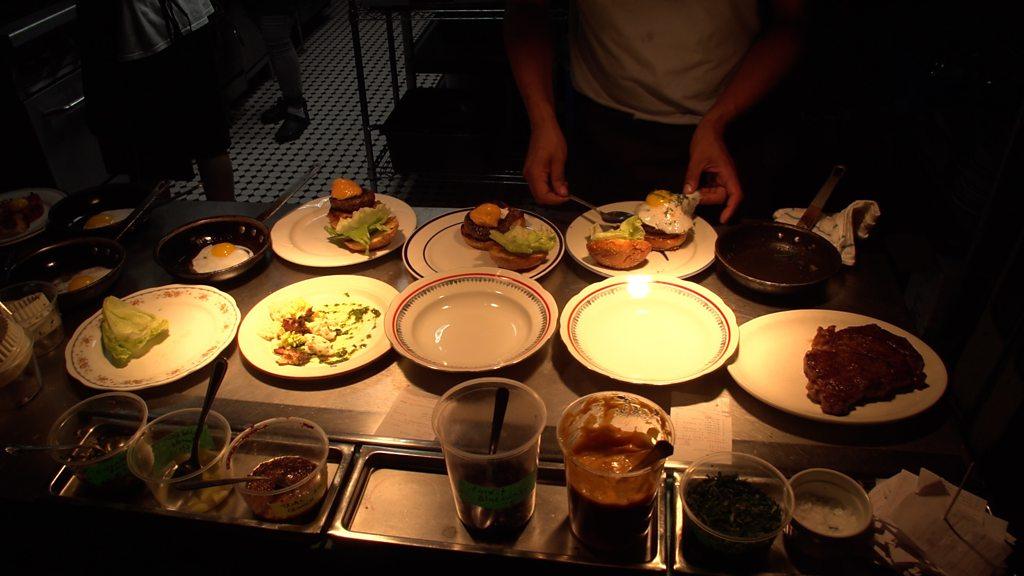Canada has its first Michelin guide. Does it matter?
- Published
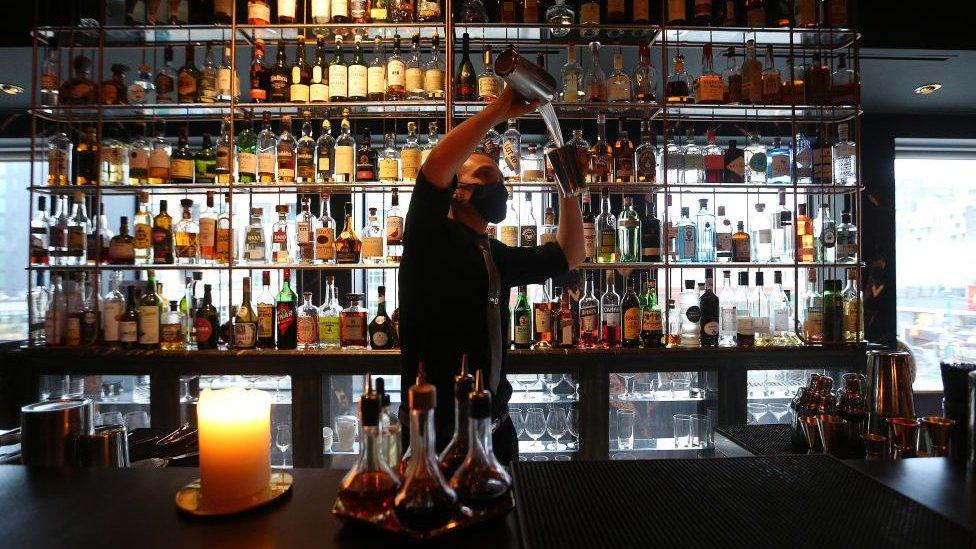
A bartender at Alo restaurant in Toronto, consistenly ranked among the best restaurants in the world
The Michelin guide - once heralded as the "Academy Awards" for restaurants - is coming to Canada for the first time. But should a centuries-old Parisian tradition be judge and jury for the country's diverse and ever-changing food scene?
Two years ago, avid food lover Aashim Aggarwal and his partner, Amaara Dhanji, decided to go on a quest.
Unable to travel due to pandemic restrictions, the Toronto couple would instead try a dish from every country in the world by only eating from restaurants in and around their home city.
Mr Aggarwal first saw this challenge being attempted in New York - a city of global influence with a world-renowned culinary scene - but he knew it was possible in Toronto, too.
"I remember thinking, 'Toronto can definitely compete'," Mr Aggarwal told the BBC.
So far, he has been able to try food from 78 countries, with around 45 more to go on his list.
What's impressed Mr Aggarwal the most is not only the number of countries he has sampled food from by just eating in Canada's largest city, but also the variety that exists within each cuisine - a Burmese noodle dish prepared with a recipe from Karachi, or a Thai restaurant specialising in food from the country's northern region.
The food found in Toronto, he said, "is not only regional, but it is deeply personal".
This breadth of the city's food culture will soon be under an international spotlight. Tyre company Michelin has chosen Toronto as the next destination for its coveted restaurant guide - the first in Canada. Restaurants being awarded with one or more Michelin Stars will be unveiled on Tuesday.
Vancouver, Michelin has said, will soon follow.
The arrival of the guide in Toronto - first announced in May by Michelin, the city's mayor, and Canada's federal minister for tourism - has been celebrated by some as an exciting opportunity that will boost exposure for the city, marking it as a global destination for food and travel.
But it has also unearthed a familiar debate seen in other large cities like New York or Los Angeles: Will Michelin's selections reflect the diversity of Toronto's food and dining experiences? Will the guide create pressure on restaurants to live up to the hype?
And does Toronto, where some restaurants have already achieved international acclaim, still need Michelin's seal of approval?
"My first reaction is, it's kind of late," said Toronto food writer Suresh Doss, whose work is focused on showcasing diverse mom-and-pop restaurants and innovative food ventures in the city, especially outside the downtown core.
"If we needed outside recognition, it would have been maybe 10 to 15 years ago," he said.
The process of bringing a Michelin guide to a city is an extensive one, explained Andrew Weir, the executive vice-president of tourism group Destination Toronto.
In Toronto's case, Mr Weir said it began with conversations almost five years ago between two local business owners, Mayor John Tory, and Michelin.
Destination Toronto then got involved and formed a marketing partnership with the company - something he said Michelin has done with other cities - and an assessment process began.
"For some destinations, that assessment might be the end of the road," Mr Weir said, meaning Michelin may determine that a certain city doesn't have a culinary scene strong enough to warrant a long-term guide.
Toronto passed with ease, he said, and the guide was set to launch in 2020. Pandemic disruptions, however, delayed the announcement by two years.
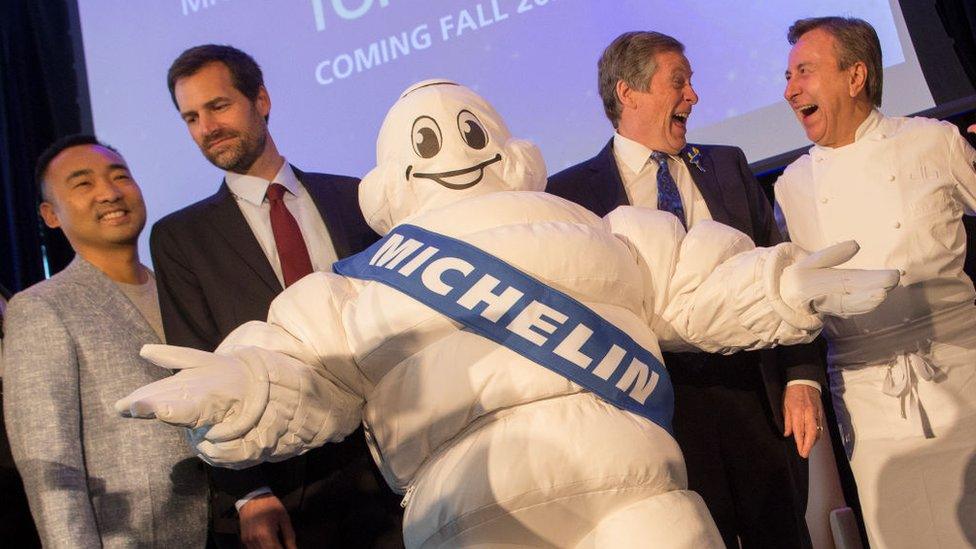
The Michelin guide's existence dates back to 1889, when the brothers behind the brand launched a travel guide in the form of a little red book to encourage transportation - and therefore boost tyre sales - in France.
It has since expanded to other cities around the world, including in Asia and North America. It has also become a living guide - restaurants can earn - and lose - stars.
The process of awarding a Michelin star is shrouded in secrecy. When Toronto's announcement was made,, external Michelin said anonymous inspectors were already eating around the city, booking their own reservations and using a broad rubric to measure each dining experience.
Throughout the years, Michelin and its stars have ascended as a symbol of success and notoriety in the culinary world - some say akin to a film winning an Academy Award for Best Picture.
But the guide has also received its share of criticism. After the 2021 guide was released, food publication Eater wrote that the choices "stuck to mostly Eurocentric and Japanese selections, leaving out major swaths of the US culinary landscape".
Mr Aggarwal said Michelin tends to reward tasting menus - where dishes are served in small portions - rather than family-style restaurants, an abundance of which exist in Toronto suburbs that are harder to reach by public transit.
Chefs who have been awarded Michelin stars have also spoken out about the pressure they've faced to meet expectations set by the guide. Some have even "given back" their stars by revamping their restaurants, effectively stripping themselves of a Michelin title.
In Toronto, the response has been mixed.
When visiting the city in 2016, the late chef and food journalist Anthony Bourdain told Maclean's magazine that Toronto's restaurants were "doing something right" by not having Michelin at their doorstep.
"Who needs that kind of validation?! I think it's meaningless," Mr Bourdain said.
Some chefs the BBC reached out to for this story did not respond or declined to be interviewed, with one saying they wanted to wait and see how Michelin's arrival plays out in the city.
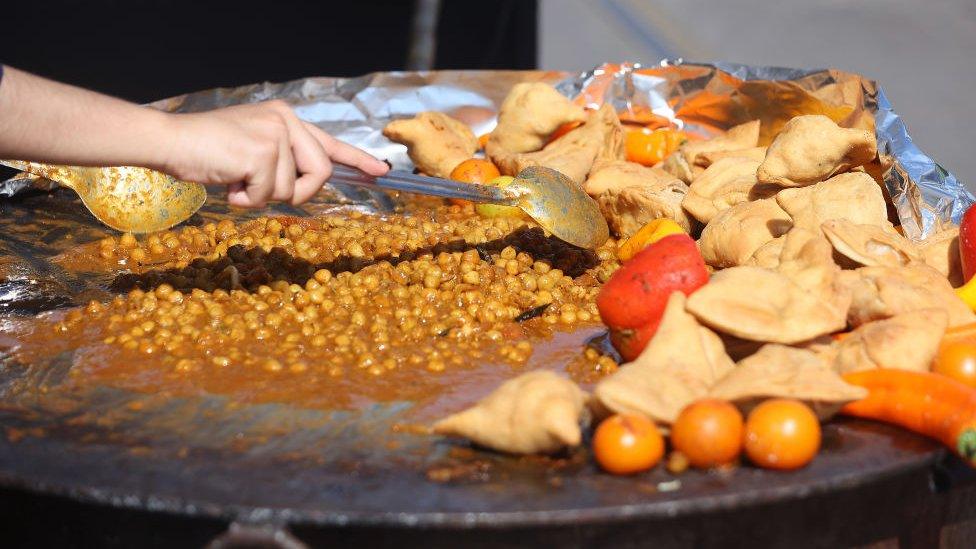
Toronto is known for being the most diverse city in Canada, and has a culinary scene to match
For Victor Ugweke, who recently launched a food venture in Toronto focused on reimagining the West African Food he grew up eating in Nigeria, the arrival of Michelin won't change his focus on celebrating the food of his culture. He said he hopes that will be the case for other kitchens, too.
"I hope as a city, we just keep valuing the food that brings us all together," Mr Ugweke said.
Others spoke out when the initial announcement was made. Jen Agg - a renowned restaurateur in Toronto - wrote in Canada's Globe and Mail in May that the Michelin guide belongs to a "bygone age", external. She added that she would return a Michelin star if she were to receive one.
But she admitted that "chefs are pretty into Michelin, even the cool ones", and that earning a star means a great deal to people in the restaurant industry who have worked hard for years to perfect their craft.
Working at Michelin-starred facilities was an "incredible experience" for Rudi Fischbacher, who is now the dean of hospitality and culinary arts at Toronto's George Brown College.
He said it enabled him to learn a lot as a cook in a short period of time, by working with high quality ingredients and being part of a kitchen brigade focused on delivering a perfect, consistent dish on each plate.
"I call it the Formula 1 of culinary," Mr Fischbacher said, acknowledging the pressure a star can have on a food or hospitality establishment. "It is so intense."
He also recognised Michelin's efforts to reward more than fine-dining experiences.
There are the Bib Gourmand awards up for grabs, given to restaurants that offer good food at a reasonable price, or the Michelin Green Star, awarded to restaurants who put sustainability practices top of mind when serving their guests.
Above all, Mr Fischbacher said he is excited for the opportunities more international recognition can bring to up and coming local chefs.
For a city that is notorious for losing its talent to places that get more recognition, like New York City or London, Mr Aggarwal agreed that Michelin could be a good thing.
More homegrown talent, he said, may "see a future here".
As for whether it'll change how and where people eat in Toronto, the jury is still out.
For food writer Mr Doss, he said it is the locals' opinion that matters above all else.
Related topics
- Published24 May 2021
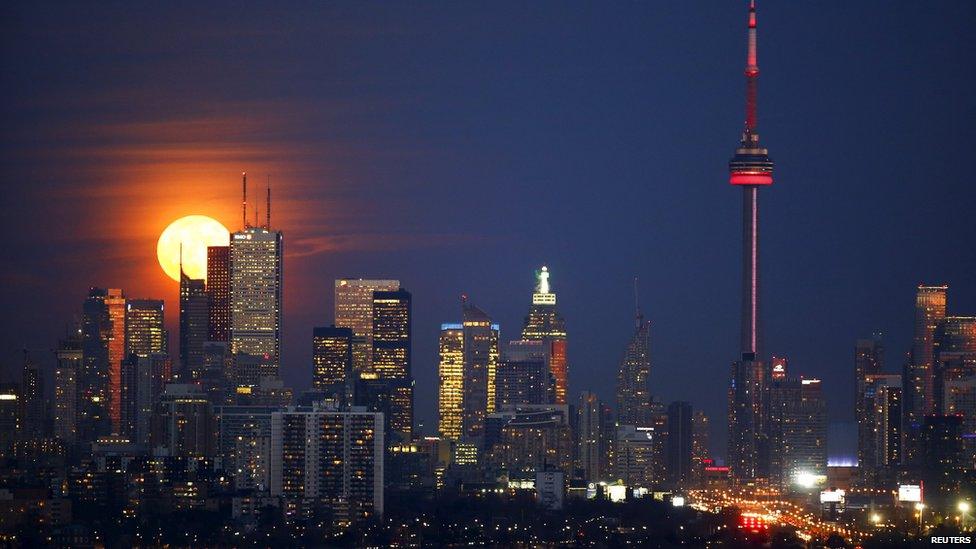
- Published22 June 2021
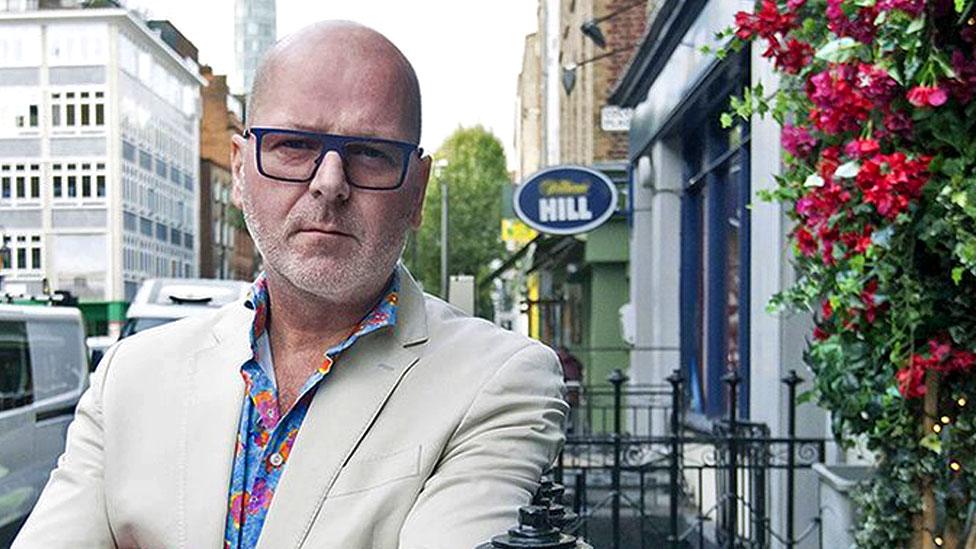
- Published2 July 2019
